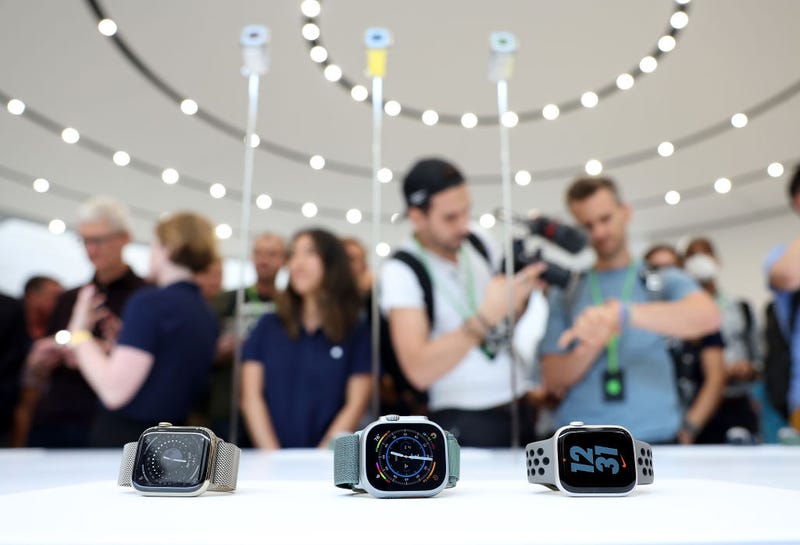
The technology giant Apple could soon be in trouble when it comes to its smartwatch after the International Trade Commission successfully passed an import ban on the Apple Watch due to alleged patent infringements.
The ban is a result of an ITC ruling in December that said Apple infringed on patents for wearable heart monitoring technology, Reuters reported. The patents are held by a California startup, AliveCor, according to the ITC.
The watches being questioned in the ITC case are the higher-end models that feature an electrocardiogram sensor for users.
Leading up to its approval, Apple had lobbied the Biden administration to block the potential ban, but US Trade Representative Katherine Tai allowed it to go through on Tuesday.
However, the Commerce Department’s Patent Trial and Appeal Board has also ruled on the case.
The board said in a December ruling that the patents held by AliveCor were invalid, which has put the ITC import ban on hold for now, Fox News reported.
While the import ban will not go into effect immediately, Apple is now headed for a long legal dispute with AliveCor. The path forward for Apple includes appealing the ITC ruling, while AliveCor will appeal the Patent Trial and Appeal Board’s ruling.
The decision for both cases will be settled in a federal appeals court and ultimately decide whether or not Apple will be able to import its watches to the US.
AliveCor alleges that it first shared its heart-monitoring technology with Apple in 2015. The company says it was attempting to partner with Apple to help produce devices around its technology.
However, in 2018 Apple began integrating heart monitoring sensors into its smartwatches, which AliveCor says resulted in Apple blocking third-party app providers from accessing device users’ heart rate data. AliveCor alleges this resulted in canceling sales for its Apple Watch heart-monitoring accessory.
Apple responded to AliveCor’s allegations, court filings show, claiming it began developing and patenting its own heart monitoring systems more than a decade ago.
“The patents on which AliveCor’s case rest have been found invalid, and for that reason, we should ultimately prevail in this matter,” an Apple spokesperson said in a statement.
Apple just might ultimately prevail, as experts like William Mandir, a partner at intellectual property law firm Sughrue Mion, spoke with The Hill about the case, saying that appeals courts tend to side with the decisions from the Patent Trial and Appeal Board 75% of the time.
“In general, it’s an uphill battle, which on its face seems to favor Apple,” Mandir said. “But you’d have to really dive into the specifics to see what the merits are on appeal.”
However, Apple Watches won’t face an import ban anytime soon, as AliveCor says the decision won’t come until 2024, with the appeals process typically taking anywhere from 12 to 18 months.
In that time, Apple could also explore other alternatives to avoid the pan entirely.


